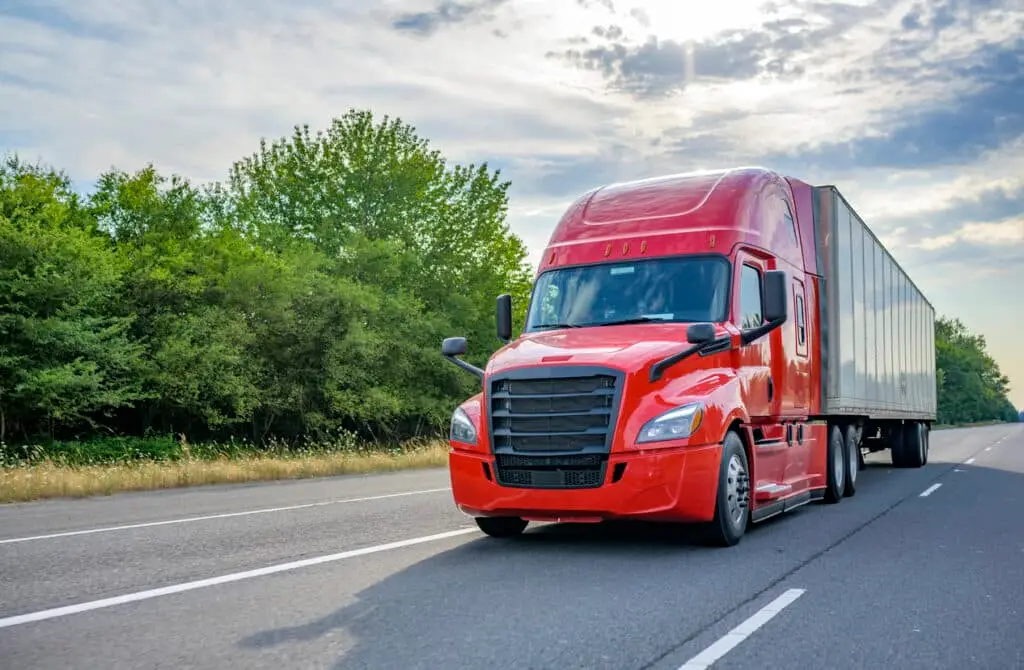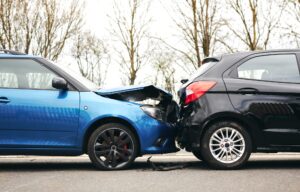Table of Contents
ToggleWhat Is A Commercial Vehicle?

Most people think of a commercial motor vehicle as a large truck. However, commercial vehicles can include buses, vans, and other vehicles. California Vehicle Code §260 defines a commercial vehicle as a vehicle used to transport people for hire or profit or to transport property.
Section 383.5 of 49 CFR (Code of Federal Regulations) breaks down commercial motor vehicles into three groups:
Group A Commercial Vehicles
These are combination vehicles that weigh 26,001 or more, including a towed unit with a gross vehicle weight of more than 10,000 pounds. Semi-trucks and tractor-trailers are examples of combination vehicles.
Group B Commercial Vehicles
This group includes heavy straight vehicles that have a gross vehicle weight or gross vehicle weight rating of 26,001 or more.
Group C Commercial Vehicles
This group includes smaller vehicles that do not meet the requirements of Group A or B. However, the vehicle is designed to transport 16 or more people, including the driver. Group C also includes a vehicle of any size used to transport hazardous materials.
Commercial Truck Laws Designed To Reduce the Risk of Large Truck Accidents
Commercial truck accidents cause thousands of accidents each year. These crashes result in catastrophic injuries and fatalities. Most of the victims of large truck accidents are people in other vehicles.
Because commercial trucks pose a significant risk to others on the road, there are special laws and regulations governing the trucking industry. Violating commercial truck laws can increase the risk of a truck accident.
Examples of commercial truck laws include, but are not limited to:
Reduced Speed Limits
As speed increases, the risk of an accident and severe injuries increase. Therefore, commercial trucks have lower speed limits than other vehicles on certain roads. Also, trucks carrying hazardous materials have lower speed limits than other vehicles.
Hours of Service Rules
Truck drivers who are drowsy or tired are at a higher risk of causing a truck accident. The federal government sets hours of service limits to reduce the risk of fatigued truck driver accidents. The regulations restrict how many hours a truck driver can operate a vehicle without sleep or rest periods.
Cargo Regulations
Federal and state laws regulate the cargo trucks may carry. There are weight limitations and rules for securing cargo. Breaking cargo rules can cause a truck driver to lose control of the vehicle, or the cargo may shift, causing a rollover accident.
Rules for Driving Lanes
Trucks might be required to drive in specific lanes on certain roads. For example, commercial trucks typically must stay in the two right-hand lanes when traveling on a road with four or more lanes.
Driver’s License Requirements
California has strict rules for commercial driver’s licenses. Individuals must have special training and pass tests to obtain their driver’s licenses. The rules are designed to ensure a person has the skills and knowledge to operate a commercial truck accident.
Truck Maintenance and Repairs
Trucking companies and truck drivers must follow strict regulations for the maintenance and repair of trucks and trailers. A commercial truck is a complex piece of machinery. It requires special maintenance to remain in good operating condition.
Failing to make repairs or maintain the truck could result in tire blowouts, brake failure, and other problems that lead to truck accidents. In some cases, faulty repairs can lead to a truck crash.
What Should I Do After a Commercial Truck Accident in Los Angeles?
Victims of commercial truck accidents often sustain catastrophic injuries and life-altering impairments. They may spend months in the hospital and rehab centers.
Medical bills, lost wages, and other economic damages can be significant. Additionally, the pain and suffering experienced by victims can be overwhelming and debilitating. Non-economic damages can total as much or more than economic damages.
Trucking companies and their insurance providers aggressively fight truck accident claims. Therefore, you want to take steps to protect your right to full compensation for all damages.
After a truck accident, it is essential to:
- Seek immediate medical treatment for injuries.
- Never admit fault or say that you might have contributed to the cause of the truck crash.
- Contact a Los Angeles truck accident lawyer as soon as possible.
- Keep detailed records of all expenses and costs related to your injuries and recovery.
- Make notes in a journal detailing your recovery, including your physical pain, emotional state, and activities you cannot perform because of the accident.
The insurance company and trucking company might try to blame you for causing the accident. California’s contributory fault laws reduce a victim’s compensation by their percentage of fault for causing an accident. The company could claim you failed to mitigate damages to limit liability for your claim.
You deserve to be compensated for the damages caused by a negligent truck driver. Los Angeles truck accident attorneys offer free consultations. You can discuss your case and get legal advice to protect your best interests after a truck accident.
Contact Our Truck Accident Law Firm in Los Angeles, CA
If you were injured in an accident in Los Angeles, CA or you lost a loved one and you need legal assistance, please contact us to schedule a free consultation. One of our Los Angeles truck accident lawyers at M&Y Personal Injury Lawyers will get in touch with you soon.
M&Y Personal Injury Lawyers – Los Angeles Office
4929 Wilshire Blvd Suite 960,
Los Angeles, CA 90010
866-864-5477
M&Y Personal Injury Lawyers – Downtown Office
350 S Figueroa St Suite 276
Los Angeles, CA 90071
(877) 751-8953




